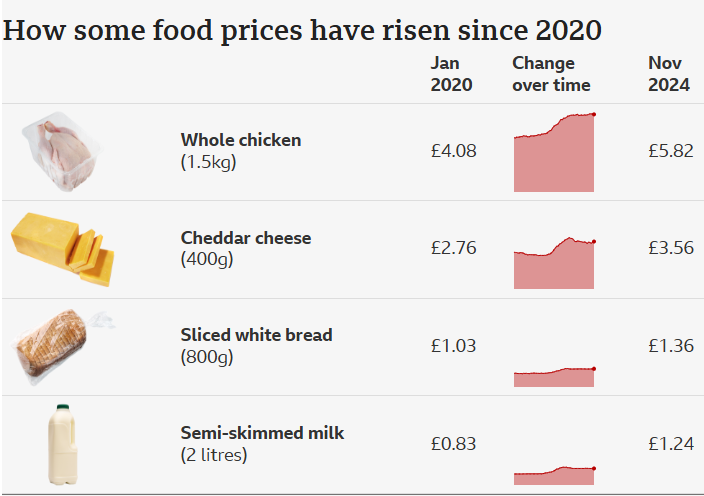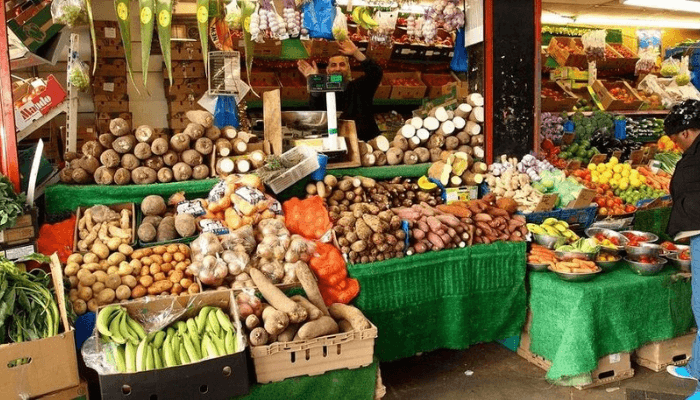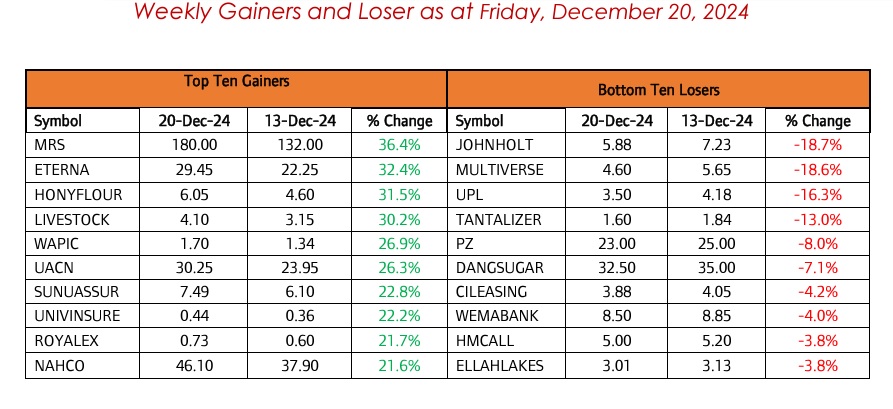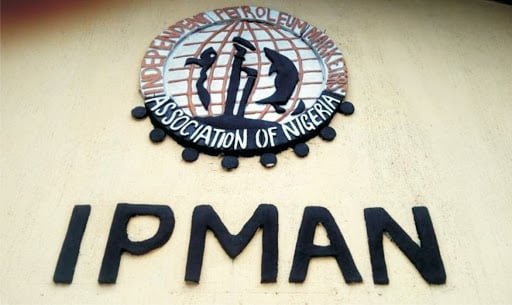Nigeria’s inflation rate soared to 34.60% in November 2024, driven by food and energy prices, while the Central Bank maintained a high interest rate to combat inflation. Discover the latest economic trends and forecasts in this week’s economic intelligence report.
In November 2024, the UK’s inflation rate rose to 2.60% YoY, up from 2.30% in October, with significant contributions from rising transport costs. Services inflation remained at 5.00% YoY, and core inflation increased to 3.50% YoY. Despite some moderation, inflationary pressures persist. A slight increase in December is expected due to ongoing wage growth and seasonal energy price fluctuations.

The Bank of England has maintained interest rates at 4.75% to address rising inflation and weak economic growth. This decision ensures price stability while evaluating future policy changes based on inflation trends.
The Bank of Japan has kept its short-term interest rate at 0.25% despite annual inflation hitting 2.90% in November 2024. The BOJ says it will keep an eye on incoming before making further policy adjustments.
Nigeria’s Economic Situation
The high inflation in Nigeria during 2024 reveals structural issues within the economy. Despite the Central Bank of Nigeria (CBN) raising the benchmark interest rate to 27.50% in November, the inflation rate reached a new 28-year high of 34.60% year-on-year, up from 33.88% in October. This increase is primarily driven by rising food and energy prices and the Naira depreciation.
Food inflation surged to 39.93% year-on-year, mainly due to escalating prices of staple foods and disruptions in agricultural regions from insecurity and flooding. Core inflation rose to 28.75% year-on-year, reflecting persistent price pressures across various sectors. Transportation inflation was at 30.54%, attributed to the removal of fuel subsidies.

Regional disparities were notable, with Bauchi, Kebbi, and Anambra seeing the highest headline inflation rates at 46.21%, 42.41%, and 40.48%, respectively. At the same time, Delta, Benue, and Katsina recorded the lowest. Food inflation also varied significantly by region, with Sokoto experiencing the highest rate at 51.30%. Overall, these figures indicate a deepening cost-of-living crisis in Nigeria.
In positive news, the World Bank approved a loan for Nigeria’s Rural Access Agricultural Marketing Project, which aims to improve infrastructure and productivity.

The Nigeria Customs Service (NCS) has also removed import duties and VAT on Liquefied Petroleum Gas (LPG) and Compressed Natural Gas (CNG) equipment to lower living costs and promote cleaner energy use.
Equities Market Updates
The Nigerian equities market continued its upward trend last week, with the benchmark NGX All-Share Index (ASI) surpassing the 100,000-point mark for the first time since July 2024, closing at 101,129.09 points—a 1.76% week-on-week increase. This rally was fueled by investor confidence, festive season optimism, and a positive macroeconomic outlook, resulting in a market capitalization rise of ₦1.06 trillion to ₦61.3 trillion.
Despite the positive sentiment, trading activity was mixed as investors reassessed their portfolios in light of the November 2024 inflation data. Total shares traded declined by 10.32% to 2.44 billion units, although paradoxically, transaction value surged 78.84% to ₦88.81 billion over 48,216 deals.

Sector performance was largely positive, led by the NGX-Insurance and NGX-Banking indices, which rose by 8.83% and 3.23%, respectively while NGXINDUSTR (-0.86% WoW) and MERI-AGRIC (-0.11% WoW) saw declines. MRS Oil Plc was the top gainer with a 36.4% increase and ETERNA (+32.36% WoW). In comparison, John Holt Plc saw the most significant decline at 18.7% amidst profit-taking pressures in various stocks. Overall, the year-to-date return for the ASI stands at 35.25%.
Money Market Updates
In the fixed-income market, average yields on Treasury bills and bonds rose to 25.55% and 19.73%, respectively, due to weak demand and tight liquidity. Eurobond yields increased by 28bps to 9.64%, reflecting profit-taking and concerns over inflation and geopolitical risks.
Conclusion
Inflation is projected to jump to 35.20% in December 2024, driven by festive price increases and other factors like Naira depreciation and high food and energy costs. Although inflation may moderate in 2025 due to base effects, financing the Federal Government’s projected budget deficit of ₦13.08 trillion could introduce new inflationary pressures.
In the Nigerian equities market, bullish momentum is expected to continue, bolstered by fund managers’ year-end window-dressing.
Investors should monitor the Consumer Price Index (CPI) and other macroeconomic indicators to guide their strategies.
Comment, Like 👍, share this article, and Follow us on our social media handles.







